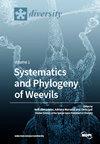Non-Native Marine Macroalgae of the Azores: An Updated Inventory
IF 2.1
3区 生物学
Q2 BIODIVERSITY CONSERVATION
引用次数: 0
Abstract
Non-native species (NNS) represent a threat to biodiversity, and their occurrence and distribution should be periodically updated and made easily available to researchers and policymakers. An updated inventory of macroalgal NNS currently present in the Azores was produced based on published reports. Data concerning the first report and the distribution in the archipelago are provided for each species, as well as their respective native ranges and possible vectors of introduction. The resulting list comprises 42 taxa, i.e., 8.05% of the marine flora presently reported in the Azores, with 16 new NNS recorded over the last decade. The most isolated islands of the Western Group presented lower numbers of NNS (4.25% and 6.25%). In contrast, the two islands with the most used marina for transatlantic recreational sailing presented higher numbers (12.90% and 16.87%). Shipping is the main introduction vector (68%), whereas most macroalgal NNS are originally from the Pacific Ocean (31%) and the Indo-Pacific (31%). The presence of 13 species is restricted to single islands, and no species is reported exclusively in the Western group. Asparagopsis armata is the only algal NNS reported from all islands of the Azores. Future work is proposed to support policymaking.亚速尔群岛的非本地海洋巨藻:更新清单
非本地物种(NNS)对生物多样性构成威胁,应定期更新其发生和分布情况,使研究人员和决策者能够方便地获取。根据已发表的报告,编制了目前在亚速尔群岛存在的大型藻类生态系统的最新清单。提供了关于每个物种的首次报告和在群岛中的分布的数据,以及它们各自的本地范围和可能的引入媒介。由此产生的清单包括42个分类群,即目前在亚速尔群岛报告的海洋植物群的8.05%,在过去十年中记录了16个新的NNS。西部群中最孤立的岛屿NNS数量较少,分别为4.25%和6.25%。相比之下,大西洋休闲帆船码头使用最多的两个岛屿的数字更高(12.90%和16.87%)。航运是主要的引进媒介(68%),而大多数大型海藻NNS最初来自太平洋(31%)和印度-太平洋(31%)。13个物种的存在仅限于单个岛屿,没有物种被报道专门在西部群。阿玛天冬酰胺是亚速尔群岛所有岛屿唯一报告的藻类NNS。提出了未来的工作,以支持政策制定。
本文章由计算机程序翻译,如有差异,请以英文原文为准。
求助全文
约1分钟内获得全文
求助全文
来源期刊

Diversity-Basel
Environmental Science-Ecological Modeling
CiteScore
3.40
自引率
12.50%
发文量
925
审稿时长
11 weeks
期刊介绍:
Diversity (ISSN 1424-2818) is an international and interdisciplinary journal of science concerning diversity concept and application, diversity assessment and diversity preservation. It is focused on organismic and molecular diversity. It publishes reviews, regular research papers and short notes in the regular issues. Related news and announcements are also published. Our aim is to encourage scientists to publish their experimental and theoretical results in as much detail as possible. Therefore, there is no restriction on the length of the papers. Full experimental details must be provided so that the results can be reproduced.
 求助内容:
求助内容: 应助结果提醒方式:
应助结果提醒方式:


